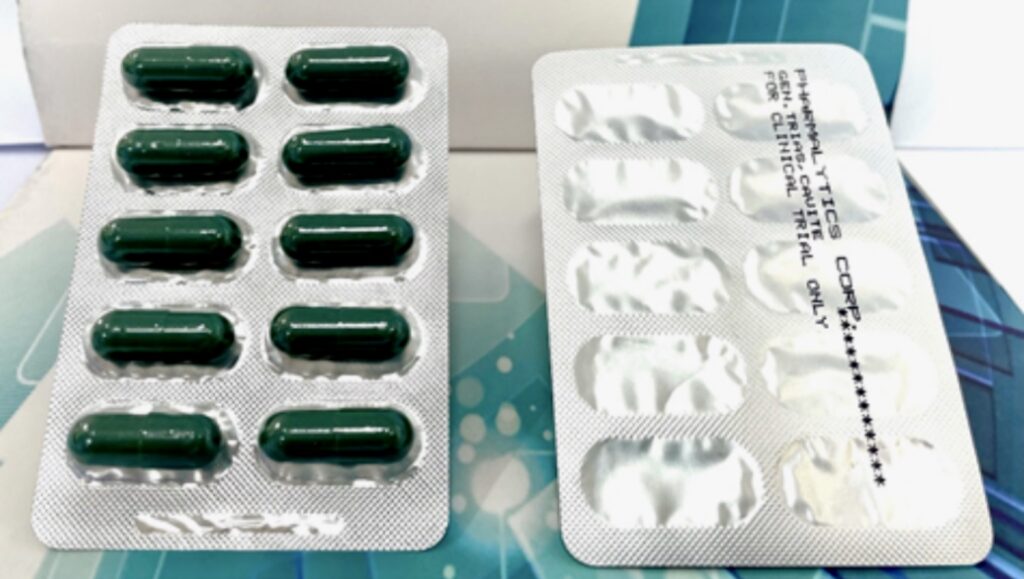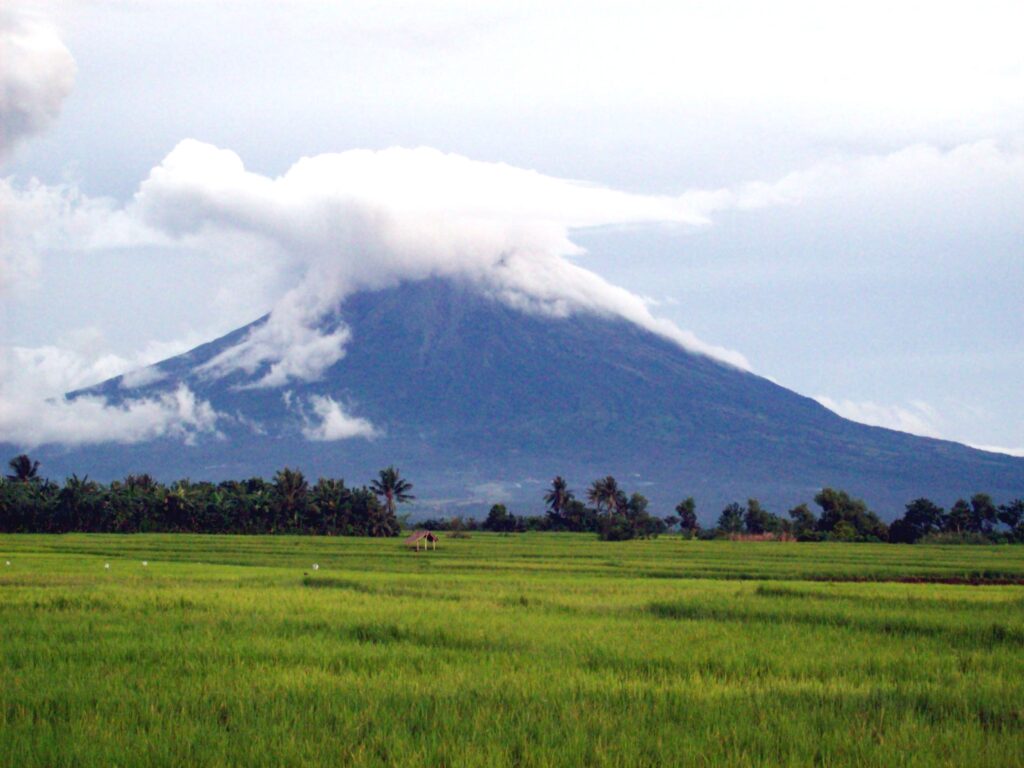Text and photos by Henrylito D. Tacio
Additional photo by DOST
The Department of Science and Technology (DOST) has some good news to offer in the field of medicine.
Anti-dengue herbal capsule
For one, it is now undergoing the final stage of the clinical testing of herbal capsules that may treat dengue fever, a mosquito-borne tropical disease. It was developed through its Tuklas Lunas program.
The clinical trial, which costs nearly P12 million, is being implemented by Pharmalytics Corporation. The funding comes from DOST through the Philippine Council for Health Research and Development (PCHRD).
The randomized, double-blind, placebo-controlled study – which is being conducted in Cavite – aims to determine the efficacy and safety of an herbal capsule when taken orally by adults with dengue fever showing no warning signs.
Each fixed-dose capsule combines the ability of tawa-tawa (scientific name: Euphorbia hirta) and banaba (Lagerstroemia speciosa) to increase platelet count with the immune-boosting and anti-inflammatory properties of luya (Zingiber officinale).
Tawa-tawa was once used by students of the University of Santo Tomas Faculty of Pharmacy. They wanted to find out the effects of the tawa-tawa decoction on a dengue patient showing a symptom of thrombocytopenia (low platelet count due to excessive bleeding).
Results of the study showed that platelet count increased by 47%, depending on the drug used to induce thrombocytopenia. Bleeding time was reduced up to 62%, while blood clotting time decreased to 58% compared to the control group.
Banaba, also known as giant crape myrtle, is used to treat diabetes and kidney failure, as well as obesity and high fever. Luya, more popularly known as ginger, is high in gingerol, a substance with powerful anti-inflammatory and antioxidant properties.

“Once proven safe and effective, the herbal capsule will be the first definitive treatment for dengue,” the press statement said. “It could pave the way for use in cases showing warning signs and even in severe types.”
On the economic side, farmers can benefit from cultivating any of the three medicinal plants, the increased demand for which may come from local pharmaceutical companies that could manufacture the treatment for domestic and even overseas markets.
VCO as adjunctive therapy
The coronavirus disease 2019 (COVID-19) has dislodged dengue fever as the feared disease. There is still no cure against COVID-19, but DOST is exploring the possibility of using virgin coconut oil (VCO) as adjunctive therapy for hospitalized patients with COVID19. It is investing about P8.4-million for the study.
Adjunctive therapy is any therapeutic maneuver therapy ancillary to the care needed a short term to stabilize a patient, but which reduces the morbidity and mortality long term.
More than half of the money – about P4.8 million – will be used by the Philippine General Hospital for 74 eligible patients who will participate in a study that will monitor the safety of VCO.
“The patients will be randomly assigned either to a standard care or treatment group,” the press statement explained. “The treatment group will receive 15 milliliters or about one tablespoon of VCO every meal, three times a day on top of standard regular care for two weeks.”
During this period, the patients’ lipid profile, fasting blood sugar, creatinine, and efficacy of VCO through recovery from symptoms and virus clearance will be closely monitored. Dr. Marissa M. Alejandria of the University of the Philippines Manila supervises this project.
“Results from this study will prove the efficacy of VCO in helping improve the overall health status and recovery of a COVID-19 patient,” the press statement explained.
Another project – costing P3.6 million will be handled by the Food and Nutrition Research Institute, a line agency of the DOST. The VCO is given to suspect and probable cases of COVID-19 who are quarantined in a center or hospital, so the cases will not be severe.
Tapped to led this project is FNRI Director Dr. Imelda Angeles-Agdeppa. It aims to evaluate VCO’s beneficial effects in terms of CRP level, all hematology tests (CBC differential count), pulmonary function, viral load or CD4+, lipid profile, diminishing/resolution of signs and symptoms, and the number of days in the center.
CRP refers to C-Reactive Protein. An elevated CRP level means there is inflammation somewhere in the body.
“If the results of this study prove to be successful, VCO can be used as a potential supplement of suspect and probable cases of COVID-19 to prevent the worsening of the condition of the patient,” the press statement said.
The VCO used in the study was analyzed by the Laboratory Services Division of the Philippine Coconut Authority (PCA). DOST funding on VCO studies was released through its Philippine Council for Health Research and Development.
“There are still alternative solutions against COVID-19 aside from vaccines,” said Science Secretary Fortunato de la Peña in a statement. “Although further investigation is needed before we develop a possible prevention or treatment option, we aim to give Filipinos hope through our ongoing local research initiatives.”
So, what’s in the VCO that makes it a candidate as adjunctive therapy for COVID-19? VCO reportedly contains lauric acid and monolaurin. Past studies suggest that these chemical compounds can stop the replication of the COVID-19 virus and the binding of the proteins of the virus to the cell membrane of the host.
These chemical properties of VCO are now being used against COVID-19 through adjunctive therapy.
Dr. Fabian M. Dayrit of the Ateneo de Manila University is one of the advocates of using VCO in treating COVID-19. An academician of the DOST-National Academy of Science and Technology, he is also involved in the DOST-FNRI study.
“If proven as an effective adjunctive therapy, VCO can boost the coconut industry in the Philippines,” said the press statement. “Then, if the VCO will indeed be successful in addressing COVID-19, the market for VCO will increase because it will also become affordable and easily accessible to consumers.”
New kind of antibiotic
Seventy-one years after the discovery of a new strain of Streptomyces in Iloilo, another bacterium in the soils of the Philippines was discovered, which has potential antibiotic and anti-cancer properties.
Researchers from the University of the Philippines Los Baños (UPLB) have identified a specific bacterial species from the soils of Mount Mayon that has shown potential antibiotic and anti-colorectal cancer activities.
“This specific bacterial isolate, identified as Streptomyces sp. A1-08, has shown antibiotic activity against numerous potentially pathogenic microorganisms and anti-colorectal cancer potential,” reports David Matthew C. Gopilan, of the Science and Technology Information Institute (STII)
“We were totally surprised and excited,” replied Kristel Mae P. Oliveros, the project leader and an assistant professor in the UPLB Microbiology Division, when asked how they felt upon finding out the results of their experiments.
“We have high hopes of getting new and novel species because this is a less explored environment, a volcano,” Oliveros said.
The discovery of the new bacteria is discussed in a paper recently accepted by the Philippine Journal of Science (PJS), a peer-reviewed publication of the Department of Science and Technology (DOST).
According to Rosana, the choice of test organisms was also associated with the United Nation’s health agency’s list of human pathogens that pose an imminent danger to human health by 2050, mainly due to antibiotic resistance.
The research team assumed that since those 30 isolates thrive in a unique environment such as Mt. Mayon’s volcanic soils, they most likely produce unique chemical compounds that may have medical, pharmaceutical, and even cosmeceutical uses.
Moreover, Streptomyces species are generally known to produce medically and pharmaceutically important products.
But Streptomyces sp. A1-08 stood out because it has shown antagonistic effects on all test microorganisms and the methicillin-resistant Staphylococcus aureus (MRSA). MRSA is a bacterium that causes infections in different parts of the body.

“(MRSA) is tougher to treat than most strains of staphylococcus aureus – or staph – because it’s resistant to some commonly-used antibiotics,” explains the website webMD.com.
The Geneva-based World Health Organization (WHO) has declared antimicrobial resistance as one of the top 10 global threats to public health. Antimicrobial resistance occurs when microorganisms such as bacteria, viruses, fungi, and parasites change in ways that render the medications used to cure the infections they cause ineffective.
Because Streptomyces sp. A1-08 seems to fight off MRSA; this prompted Oliveros and her team to study Streptomyces sp. A1-08 further using the anti-colorectal cancer test and genomic analysis.
“Future rigorous research in drug chemistry combined with metabolomics are vital to claim that the secondary metabolites produced by our isolate is totally new and hopefully effective as a chemotherapy drug,” Oliveros added.
Metabolomics is the study of the set of metabolites presents within an organism, cell, or tissue.
“This is also our dream, to put this project forward in the large-scale cosmeceutical and pharmaceutical pipeline!” Oliveros said.
She finds it honorable to pioneer extending their discovery to industrial applications and “to showcase the known and great potential of the Philippines as a promising land that harbors natural products for drug discovery.”

